Alibaba Cloud Strategy Grabs Global Attention, Implements Artificial Intelligence
Through maneuvering in the public sector, making Hangzhou a real case study
Let's do a little flashback to three or four years ago to answer these questions: “What global cloud computing services do you know?”, in general the answer will refer to the Amazon Web Services (AWS), Windows Azure, or Google Cloud options. Some may also be familiar with the IBM Softlayer, VMware, and Oracle brands.
There are still many other providers who are not familiar enough with customers or application developers in Indonesia. One of them was Alibaba Cloud (had the nickname "Aliyun"). They started operating in September 2009. At that time, the company under the leadership of Jack Ma and Simon Hu had opened research and development centers and operations in Hangzhou, Beijing, and Silicon Valley.
September 2014 was a historic moment for Alibaba Group, after leaning on the New York Stock Exchange (NYSE). Everyone is starting to know and recognize Alibaba's capabilities as a company E-commerce. The success of the IPO (Initial Public Offering) of Alibaba (BABA) shares brought the company to an investment of US$21.8 billion at the initial opening. All of Alibaba Group's business units have skyrocketed to the global market one by one, and Alibaba Cloud is no exception.
In 2015, Alibaba Cloud's business acceleration was increased. Starting from the disbursement of investment of $ 1 billion from the parent company. Data center (data center) began to expand, starting with Hong Kong, Singapore, and the United States. This increase is not without achievements, the capabilities are increasingly qualified as evidenced by the support of services for the 11.11 online shopping festival in 2015. At that time, it managed to serve transactions of up to $14,2 billion in 24 hours.
Currently, Alibaba Cloud already has data centers spread across 18 regions. Latest in February 2018, they built a data center in Indonesia. However, the distribution of data centers does not automatically make service providers a market leader, many efforts must be made to steal the attention of the global market. Alibaba Cloud claims to have its own way to continue to compete in market share.
Like cloud services in general, Alibaba Cloud services currently include three fundamental variants, namely Software as a Services (SaaS), Platform as a Services (PaaS), and Infrastructure as a Services (IaaS). Regarding competition, Alibaba Cloud also continues to pursue market leadership. One indication is shown in the Magic Quadrant market research in the second quarter of 2017.
At Alibaba Cloud's annual event titled "The Computing Conference 2018" in Hangzhou, they tried to emphasize what is now being done to seize market leadership. The series of strategies presented are quite interesting, namely assisting the public sector with sustainable digital transformation. Alibaba made Hangzhou (the company's base city) a pilot center for implementing renewable digital technologies.
"It's not technology that changed the world, but the dreams behind it," Jack Ma.
The direct impact of cloud computing technology
Increasingly sophisticated computing infrastructure allows many things to be done. Call it processing like big data, machine learning, artificial intelligence to internet of things, all can be done very efficiently. These points have now also become one of the things that are trying to be highlighted in the variety of PaaS products on Alibaba Cloud. Not just selling “brands”, through Simon Hu, President of Alibaba Cloud, they try to present a vision and real case studies.
Entering the conference stage, Simon demonstrated the Tmall application with a serving of tea in front of him. Through the Tmall application, Simon scans the tea on the table with the cellphone he carries to find out detailed product information. On his cellphone, information about the type of tea is displayed, the origin of the tea, and information on the delivery process. After that, he started the presentation by explaining how the city of Hangzhou has developed over the past 20 years and the new breakthroughs that Alibaba Cloud has brought with technology.

ET Brain is the name of Alibaba Cloud's AI product designed to help solve urban problems with technology. The program is based on the "Aspara" super high computing capability with processing machine learning fully integrated with data analysis and visualization. The implementation can be in various sub-sectors, ranging from ET City Brain, ET Industrial Brain, ET Medical Brain, to ET Aviation Brain.
One of the programs that was demonstrated was ET City Brain which explained how the city of Hangzhou can now be controlled through a centralized dashboard in the government. Initially implemented in 2016 in Xiaosan district, the first problem to be solved was traffic regulation to minimize congestion. AI technology and machine learning study traffic flow through IoT sensors placed at certain points. The end result, they do the traffic light regulation automatically real-time based on road conditions and density projections.
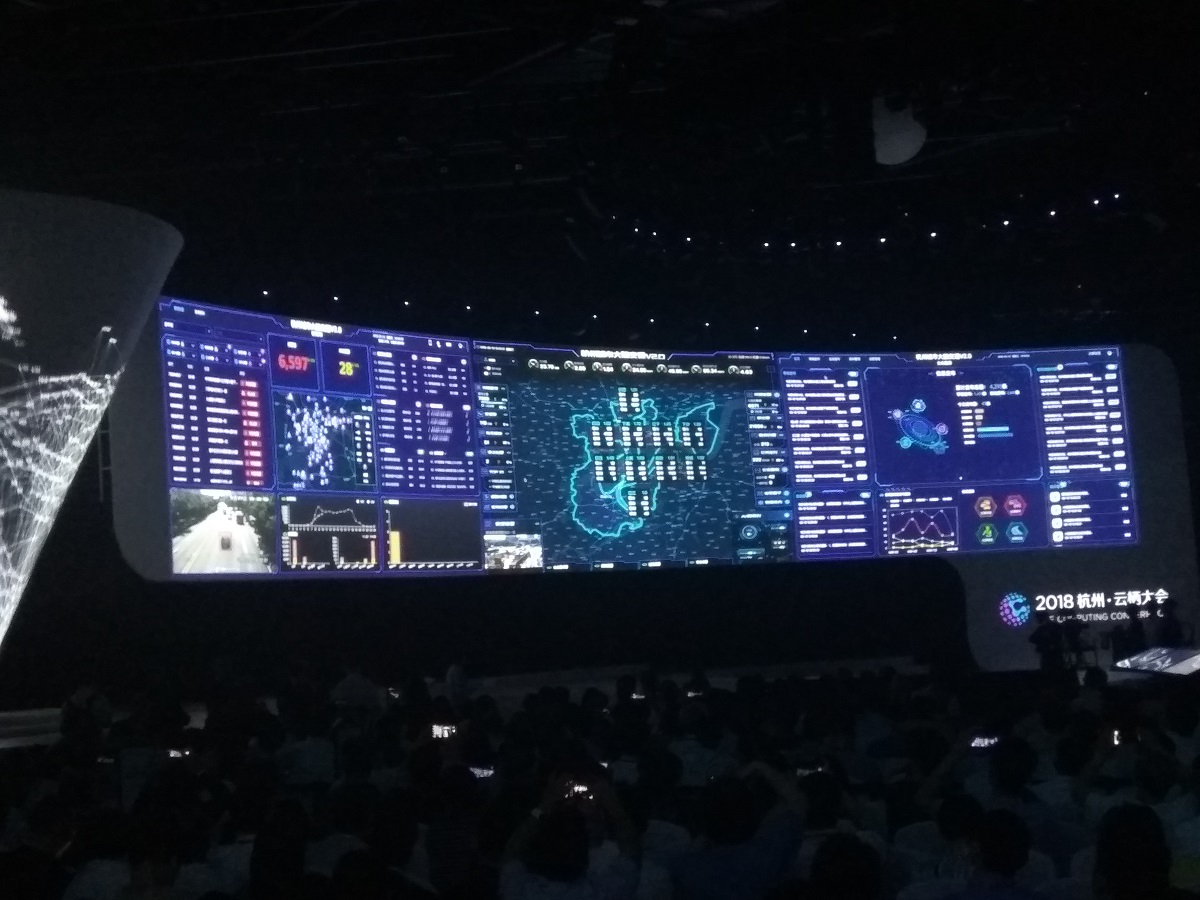
Its application continues to grow until this year. One of the most interesting is how the City Brain system can provide special access roads for critical situations, for example for an ambulance or fire truck trip. The system will perform the fastest calculation on the GPS placed on the ambulance/fire engine. From the path that has been determined by GPS, the traffic lights that are passed will be conditioned to be green when the car passes, so that eventually the car can reach its destination more quickly and efficiently.
Implementation in the wider public sector
“Ni hao banma...” said a driver to operate the computer system contained in a car. Next the person, speaking Chinese, asked the system to play some music for us, the passengers. Not only that, it can command the system by speech to do a series of things, including opening windows pintu for passengers.
The car is preinstalled with AliOS, an operating system that Alibaba launched in July 2017 for cars. AliOS combines a voice, facial and gesture based recognition system to pamper motorists with what they call the “internet car”.
In another corner of the conference building, we were also presented with a demo of the smart robot that Alibaba's logistics division uses to manage logistics. The robotic arm that is often seen in the big screen now looks so real, making arrangements for logistics deliveries. This series of systems tries to digitally connect all elements of logistics and real-time.
In addition to managing warehousing automatically, in its development, Alibaba is also implementing a modern distribution system through smart boxes and smart cars that are connected to services. E-commerce and e-logistics Alibaba. IoT capabilities are key in implementing Cainiao's suite of technologies, its smart logistics service.
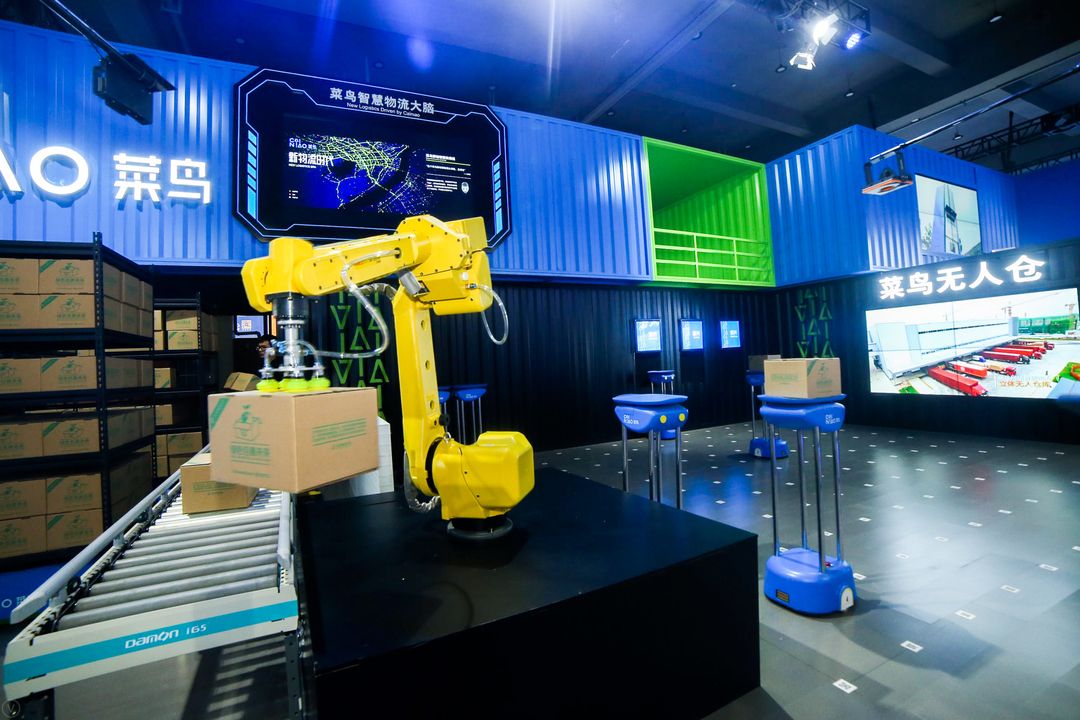
After the conference, on our way home, we stopped by a supermarket and a shopping center that has implemented a modern system. Not only accepting payments with Alipay, the modern retailer is said to provide a new experience for every visitor. Now visitors can not only make payments online, because after choosing their groceries, they can ask the system to deliver their purchases to their homes. HEMA is a modern retail concept incubation program promoted by Alibaba.
On the consumer side, the shopping experience is also supported by the Tmall application. For fresh ingredients such as vegetables, they can identify immediately when these vegetables are picked and arrived. In regulating the circulation of products, the shopping owner has also been equipped with an integrated system – with logistics – to ensure that vegetables or fruit items arrive in optimal fresh conditions. Usually such items are sold within a period of one day only. The amount has been projected – either in warehouse stock or in packages – so it is unlikely that it will remain.
ReX smart cash register technology is also applied to assist convenience store owners in identifying buyer needs and providing targeted services. So that the store can maximize the stock of goods in accordance with the projected customer needs. Currently, there are 65 Hema stores in various regions. From the confession of the shop owners we met, the increase in sales can reach 50% after the implementation of the technology. Its application is also considered quite easy, because the store does not need to provide large-spec computing, everything has been accommodated in cloud computing.
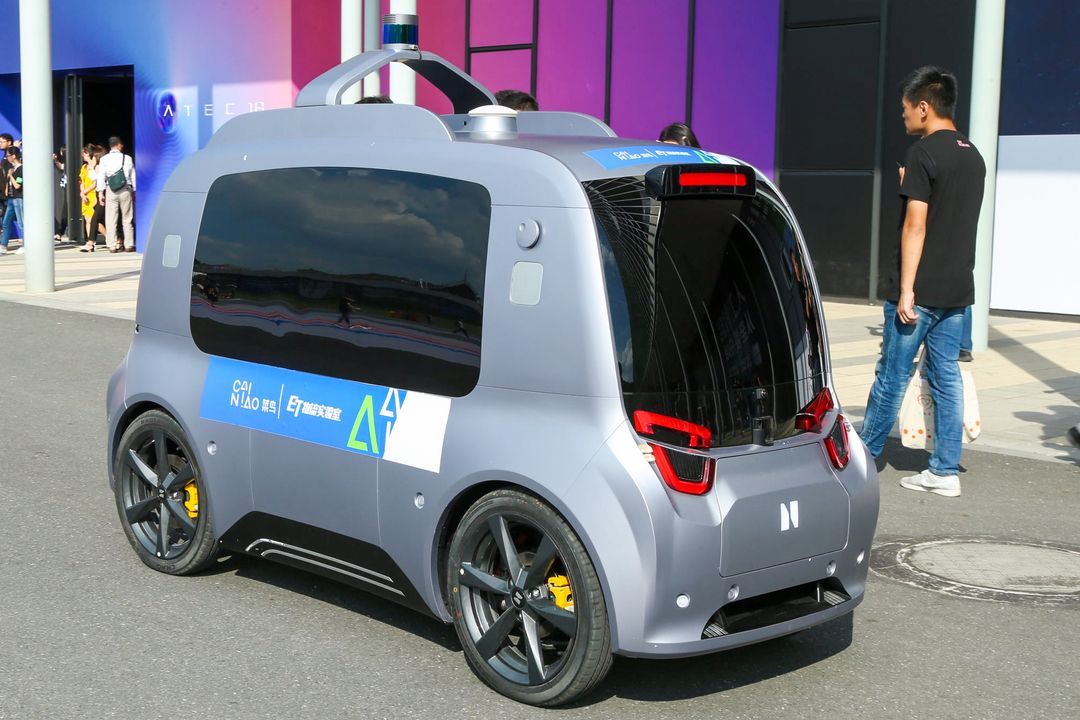
Artificial intelligence is the future
Alibaba Group CTO Jeff Zhang presented a roadmap for the development of modern cloud computing technology. One that is emphasized is through research on the development of quantum computing and AI Chips. The program will be managed through the Alibaba DAMO Academy, an initiative in the field of global research in the development of disruptive technologies for the next five years. The technology was developed to strengthen Alibaba Group's cloud computing and IoT, and does not rule out supporting commercial applications in various industries.
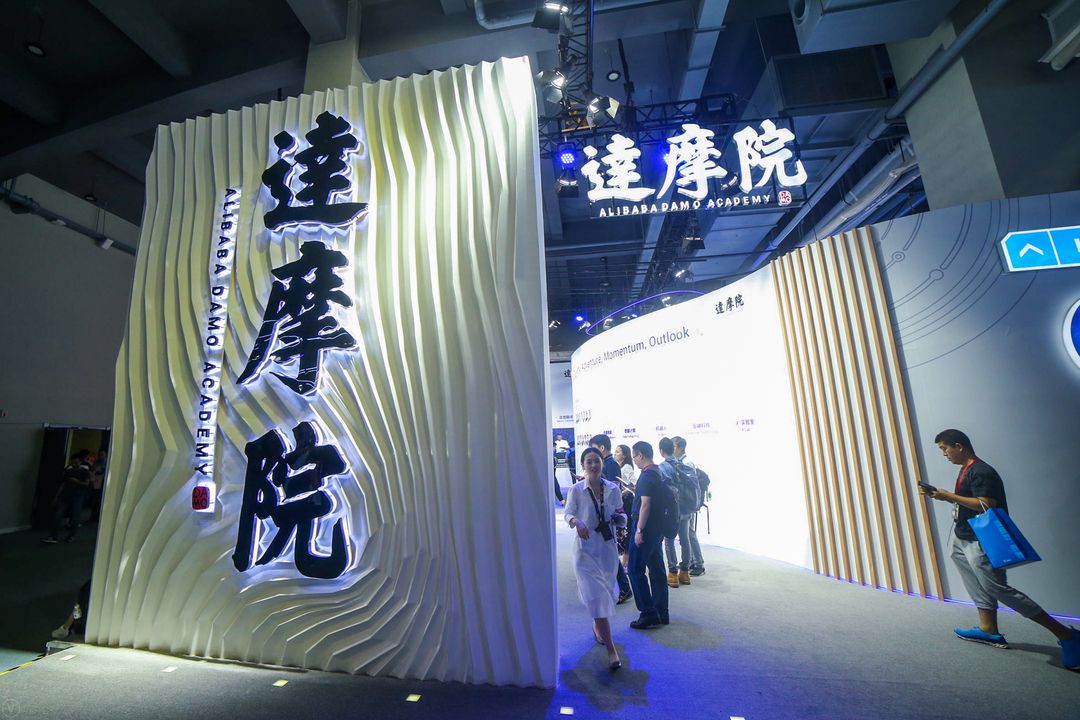
Since its establishment in October 2017, DAMO Academy has spawned several public innovations. Some of the products we have tried include: intelligent justice, which is a series of intelligent solutions in the legal field to assist the process of making trial court transcripts, including mapping for disputes and risk points. There is also a robot salesperson to assist sellers in communicating interactively with potential buyers. The robot can formulate various natural bargaining strategies. The third is direct speech translation technology when communicating face-to-face.
Alibaba also owns AI Labs, a research unit that focuses on artificial intelligence products for consumers. Currently the research center is finalizing the development of smart technology for future logistics vehicles and public service robots. This series of research is nothing but to support the mission of the Executive Chairman of Alibaba Group, Jack Ma, in realizing the "New Manufacturing" concept.
According to Jack, the concept will be a promising future. New Manufacturing is considered to be bringing major changes to conventional factories in the next 10-15 years. This concept is closely related to Alibaba's New Retail strategy, a retail approach that puts consumers first, and integrates offline and online to deliver an excellent shopping experience.
"The company's competitive strength will not depend on the production capabilities of its factories, but is measured by its ability to think innovatively, the way it prioritizes the customer experience, and the level of service," said Jack Ma.
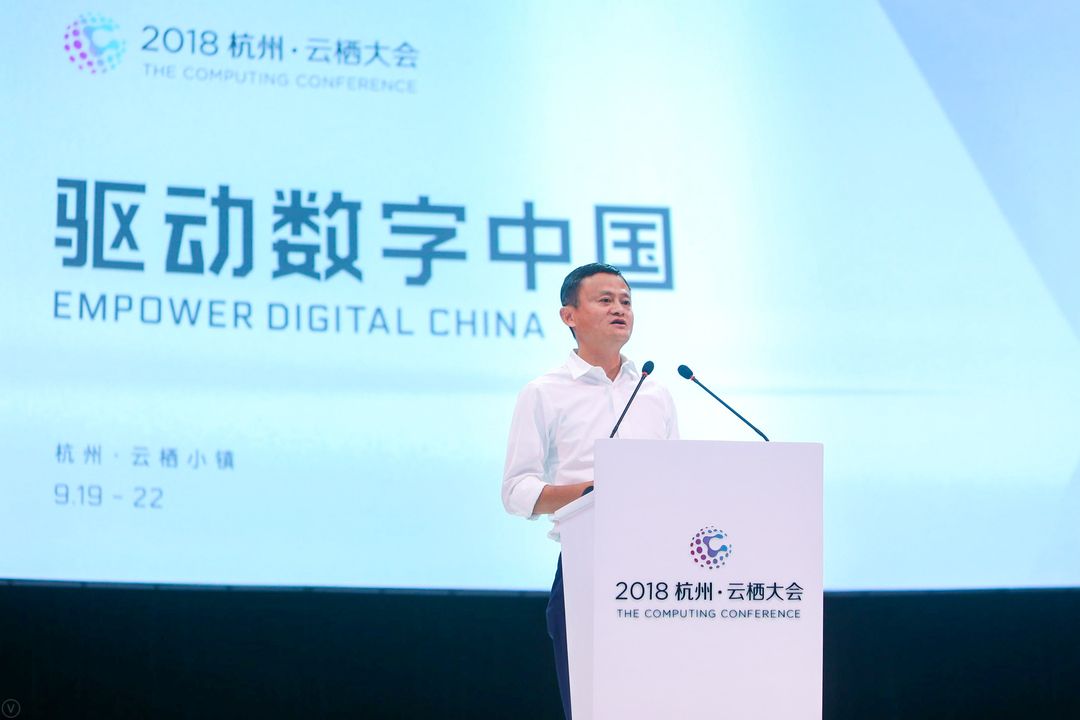
Not only in Hangzhou
Alibaba Cloud and the Ministry of Tourism and Wildlife of the Republic of Kenya have signed a strategic partnership to support animal protection projects. In this project, Alibaba Cloud will use technology such as sensors to track animals, cameras with infrared sensors, smart weather forecasting posts, equipment for creak, and large area surveillance drones are planned to be deployed to collect data real-time movement and general health of animals.
This platform will then analyze the data and predict roaming behavior and routes, as well as assist the command center to guard against potential hazards such as illegal fishing, human-animal conflicts. This technology will help the management of the national park field team to be quicker and better at managing the national park.
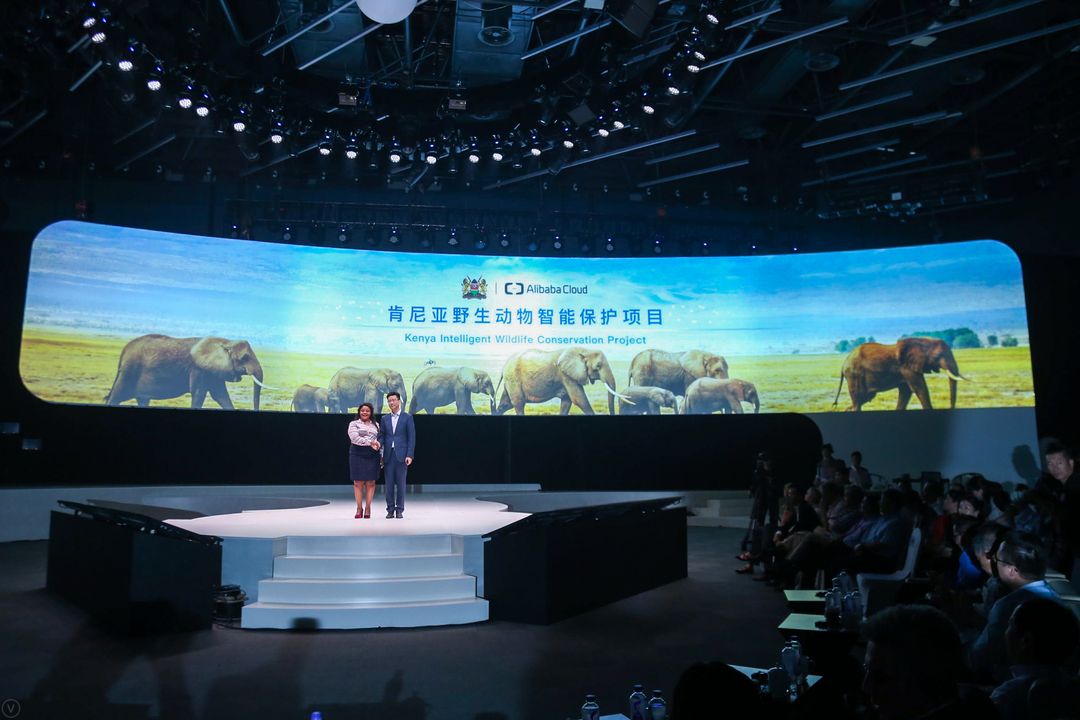
The second synergy was unveiled with Olympic Broadcasting Services (OBS) for the OBS Cloud product, an innovative broadcasting solution that operates fully using cloud computing technology for the 2020 Tokyo Olympics. This technology will demonstrate new ways in the broadcasting industry, particularly in content creation and broadcast distribution. Cloud computing is considered to be able to meet high requirements for volume accuracy, speed, and time distance which is very crucial in broadcasting sports matches for large events.
Traditionally, Olympic broadcasters were only able to implement and test their tools after arriving at the International Broadcast Center (IBC) in the host city and the area reserved for onsite broadcasters was in high demand and limited.
OBS can now provide Rights Holding Broadcasters (RHBs) with all visual and audio assets in an efficient, effective and secure manner. Broadcasters can also create, organize and distribute their content using the OBS Cloud, a solution that has been optimized to address the distribution needs of the most demanding sports.
The most interesting real breakthrough
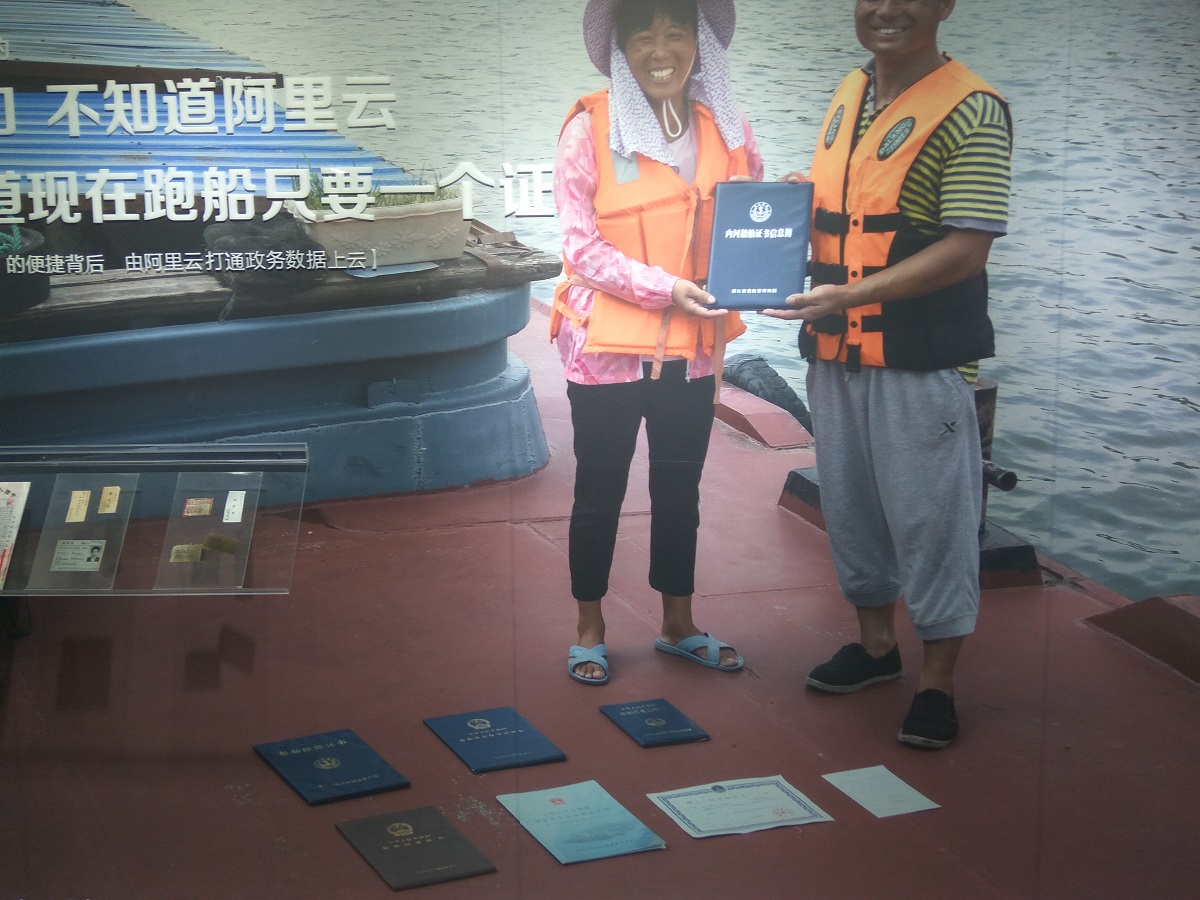
Among the many technologies on display, there was one idea that really appealed to me. With cloud computing, Alibaba has succeeded in uniting various residence letters/certificates in one hand. Simplify the management process in one pintu through integrated technology. Because I myself feel how complicated it is when it comes to dealing with correspondence with government agencies. Hopefully this solution can be replicated in Indonesia.
Sign up for our
newsletter

